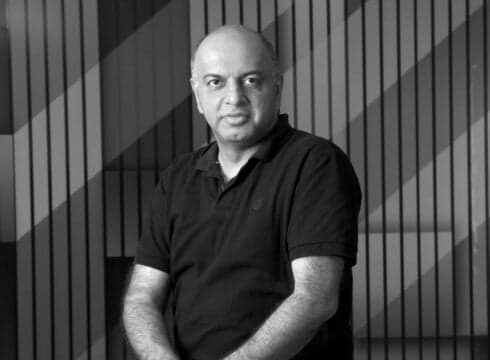Sanjeev Bikhchandani shared a long thread on Twitter, reacting to an epilogue from former BharatPe founder Ashneer Grover's book Doglapan
He emphasised that founders should understand when and when not to sell secondary shares to attain liquidity
Bikhchandani believes that truly great companies are the result of a group of people (including founders) that has devoted a lifetime for their success
Inc42 Daily Brief
Stay Ahead With Daily News & Analysis on India’s Tech & Startup Economy
Info Edge founder and chairman Sanjeev Bikhchandani on Wednesday surprised everyone when he took a jibe at an epilogue from former BharatPe founder Ashneer Grover’s book Doglapan on Twitter.
“We seek entrepreneurs who want to run the company for the rest of their lives, if needed. We don’t want founders who want to sell secondary,” he said in a long Twitter thread, reacting to an epilogue from former BharatPe founder Ashneer Grover’s book Doglapan.
Here, Grover has advised founders to always put themselves first and take every secondary sale opportunity to liquidate their stock.
“In fact, as a thumb rule, at least 80 percent of the proceeds of any secondary sale should come to the founders. You may allocate the balance 20 percent of secondary cash to ESOP (employee stock ownership plan) holders and angel investors,” Grover mentions in the epilogue.
Sharing his personal experience of raising investment, Bikhchandani of Info Edge explained whether founders should do secondaries or not. If so, when, how much and when not. Secondaries here refer to the sale of existing shares by the shareholder (in this case the founder) to gain liquidity.
He shared that in the 2000s when Info Edge raised its first and the only round of funding from ICICI Ventures, it was clearly mentioned in the agreement that the founders and management could not sell even a single share in the company without taking permission from investors.
“We were told: This would align the interests of all the shareholders and ensure value maximisation… If, however, the founders encashed some value early through a secondary then perhaps their hunger to succeed would be satiated, and they would not try hard enough to maximise the value for everyone. They would get comfortable,” he added.
Six years passed, and Info Edge went public, with founders holding the bulk of its shares.
“…every time the founders have sold anything they would actually have made more money if they had held on and sold later. Taking a company to scale, profit and an IPO in India takes a decade or more,” he said.
Bikhchandani also quoted names of Info Edge’s portfolio companies – Zomato and Policybazaar – as an example of being patient and persistent as investors. However, a few netizens did question him on these investments and his theory on the secondary sale.
Bikhchandani believes that they are long-term investors with a fund having a life of 12+2 years and their balance sheet capital is evergreen.
“Truly great companies are the result of a group of people (including founders), devoting a lifetime; Google, Microsoft, Apple, and Facebook are testimony to this. We are therefore uncomfortable when founders want to do secondaries prematurely,” he concluded.
{{#name}}{{name}}{{/name}}{{^name}}-{{/name}}
{{#description}}{{description}}...{{/description}}{{^description}}-{{/description}}
Note: We at Inc42 take our ethics very seriously. More information about it can be found here.


